
“Just $500 for a website? Awesome!” said no business owner who actually understood what they were buying. If you’re nodding along, you’ve probably been burned by those too-good-to-be-true website pricing packages.
Let’s get real about website costs in 2025. Not the fantasy numbers on those agency comparison charts, but what you’ll actually pay when all is said and done.
I’ve spent 7 years building websites for small businesses, and I’ve seen the true cost of website development from every angle – both the upfront price tag and those sneaky ongoing expenses nobody warns you about.
The question isn’t just how much you’ll pay to launch. It’s how much that “bargain” website will cost you in lost customers, credibility, and late-night frustration when things inevitably break.
Initial Website Development Costs
- Professional Design vs. DIY Options: Which Saves More?
The age-old question: hire a pro or do it yourself? In 2025, this decision impacts your wallet more than ever.
DIY website builders like Wix, Squarespace, and WordPress can cost anywhere from $0 to $500 annually. Seems like a bargain compared to professional design services ranging from $2,000 to $15,000+, right?
Not so fast.
What DIY options don’t advertise is the learning curve. Most business owners spend 40-60 hours building their first website. At an average hourly rate of $50 for your time, that’s $2,000-$3,000 of your time invested.
Here’s a quick comparison:
The truth? DIY saves money only when your time has no value or you genuinely enjoy website building as a hobby.

Development Hours: What Actually Drives Up Your Bill
- Wonder why that quote from your developer seems astronomical? It's not random.
Most developers charge between $75-$250 per hour in 2025, with development hours typically breaking down like this:
Complexity tax: Each custom feature adds 5-15 hours minimum
Revision rounds: Each major revision cycle adds 3-7 hours
Integration headaches: Each third-party tool integration adds 2-8 hours
The biggest cost inflators nobody talks about:
Changing requirements mid-project (increases costs by 25-40%)
Poor initial planning (adds up to 30% to total development time)
Decision delays (each week of delay can add 5-10% to the final bill)
When a developer quotes you 40 hours but bills 80, it’s usually not because they’re dishonest. It’s because you requested “just one small change” fifteen times.
Pro tip: Lock your requirements before development starts. Every “small tweak” costs more than you think.
Content Creation Expenses are Often Overlooked
Martin Munene Nkonge

The dirty secret of website costs? The words and images often cost more than the code.
Most businesses budget for design and development but completely forget about content. Big mistake.
Professional website content typically includes:
Homepage copy: $300-$800
Product/service pages: $200-$500 each
Blog posts: $150-$400 each
Professional photography: $500-$2,000
Stock photos: $20-$200 each (for quality ones)
Custom illustrations: $150-$500 each
If you’re launching a basic small business website with 5 pages, quality content alone can cost $1,500-$4,000. For e-commerce sites with 20+ products? Multiply that several times.
The “I’ll write it myself” approach seems tempting until you realize it takes 5-10 hours per page to create professional-grade content. And if you’re not a trained copywriter, the results often underperform.
Content is what actually converts visitors into customers. Skimping here means building a beautiful store with empty shelves.
Domain Registration and SSL Certificate Pricing
- Domain and SSL costs might seem minor compared to design, but they're essential recurring expenses that add up.
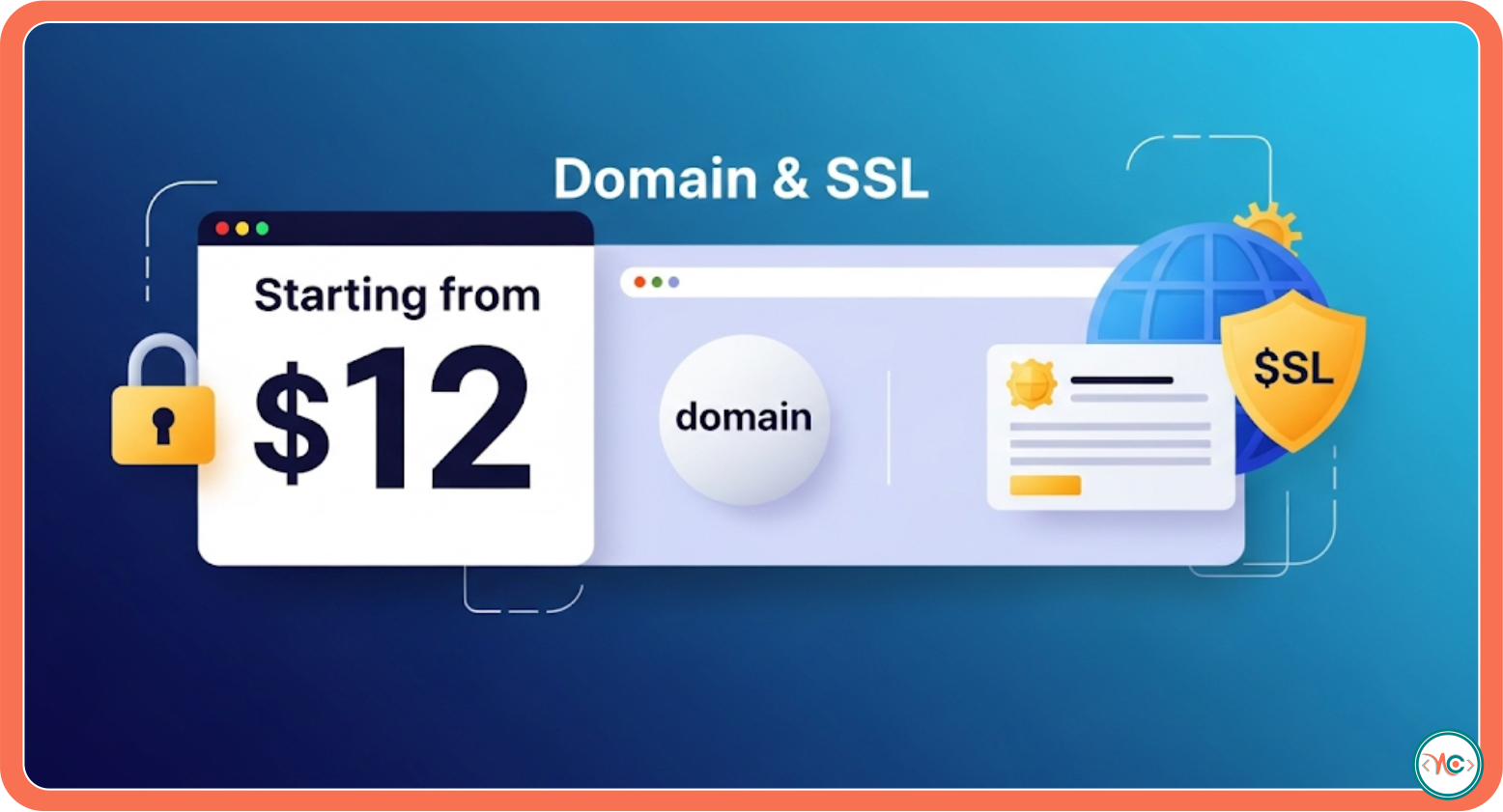
Domain and SSL costs might seem minor compared to design, but they’re essential recurring expenses that add up.
In 2025, domain pricing varies wildly:
Standard .com domains: $12-$20/year
Premium domains: $100-$10,000+/year
Industry-specific TLDs (.tech, .photography, etc.): $30-$100/year
Domain registrars love the upsell game. That $12 domain suddenly costs $50 when they add privacy protection, email forwarding, and “premium” DNS services you probably don’t need.
As for SSL certificates:
Basic SSL (included with most hosting): $0-$50/year
Organization Validation SSL: $150-$300/year
Extended Validation (EV) SSL: $300-$700/year
Most websites only need the basic SSL that comes free with decent hosting. But web agencies often mark up these services by 50-200%, calling them “security packages.”
Smart move: Register domains separately from your hosting and web development to avoid markups.
Hidden Setup Fees to Watch For
- The website quote looks reasonable until you notice the fine print. Setup fees are where many providers pad their profits.

Common hidden charges to scrutinize:
CMS installation fees: $100-$500 (for installing WordPress, which takes 5 minutes)
“Website initialization” fees: $200-$800 (often undefined work)
Training sessions: $75-$200/hour (for showing you how to use your own website)
Testing fees: $300-$1,000 (which should be included in development)
Launch fees: $100-$500 (literally pressing “publish”)
The most egregious hidden fee? “Website maintenance setup” – charging $300+ to configure automated backups that come standard with most hosting platforms.
Reputable developers include these items in their project scope. If they’re listed separately, you’re likely being double-charged.
Always ask: “What specifically does this fee cover that isn’t included in the development cost?” If the answer is vague, negotiate it away.
Ongoing Maintenance Expenses
- Keeping the Lights On: What Maintenance Really Costs
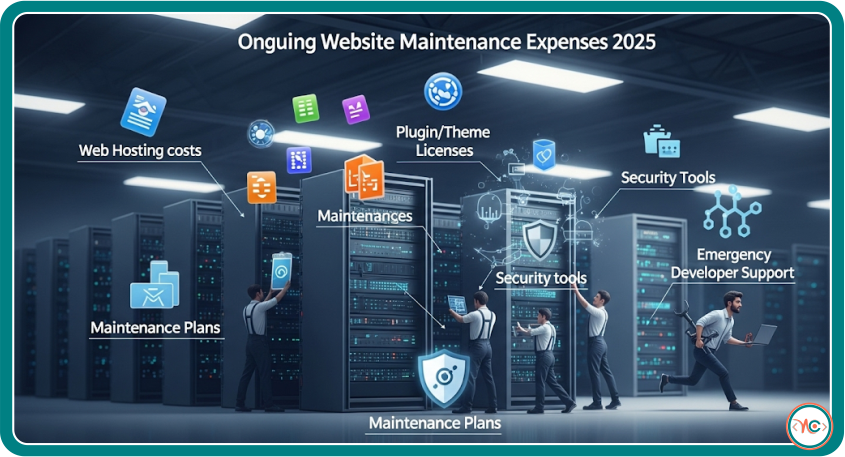
The website’s live but your costs don’t stop there.
Here’s what you’ll typically pay every month or year just to keep your site secure, fast, and functioning in 2025:
Web hosting: $10–$250/month depending on if you’re using shared, VPS, or managed WordPress hosting.
Plugin/theme licenses: $50–$300/year for premium tools (e.g., Elementor Pro, WP Rocket, etc.).
Maintenance plans: $75–$500/month for services like backups, performance monitoring, bug fixes, and content updates.
Security tools: $0–$100/month depending on whether you use free tools (like Wordfence) or enterprise-level monitoring.
But here’s what most don’t consider: What happens when your site crashes, gets hacked, or breaks after an update?
Emergency developer support ranges from $100–$250/hour, and without a plan in place, you’ll be scrambling and overpaying.
Bottom line: Maintenance is insurance. Skip it, and eventually, you’ll pay in stress, sales losses, or both.





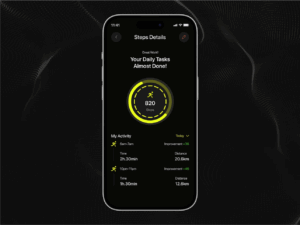
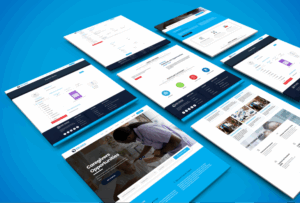


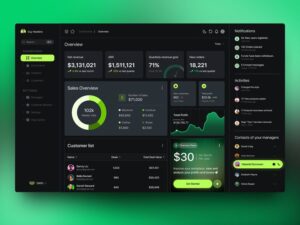
News
June 22, 2025Building a website involves more than just the initial cost; it’s about understanding the long-term investment. Many underestimate the time and effort required, especially with DIY platforms. Hidden expenses like content creation and ongoing maintenance can quickly add up. It’s crucial to plan thoroughly and set clear expectations from the start. How can businesses better prepare for the true cost of website development?
Marketing Team
July 29, 2025Thanks so much for your comment you’re spot on. Many businesses overlook the hidden costs of website development, from content creation and third-party tools to ongoing maintenance and updates. To better prepare, it’s crucial to approach a website as a long-term investment, not just a one-time project. That means setting clear goals, budgeting for continuous improvements, and planning for growth beyond launch. At Nesh Creatives, we guide businesses through this process to make sure their websites actually drive results, not just sit pretty online.
Clastering
June 28, 2025Transforming 5,000 websites by 2035 is an ambitious goal, but it’s clear that the true cost of website development goes beyond the initial price tag. Many businesses underestimate the time and resources needed for content creation and ongoing maintenance. DIY options might seem cost-effective, but the hidden costs of time and potential errors can add up quickly. It’s crucial to plan thoroughly and lock in requirements to avoid unexpected expenses. How can businesses balance the need for a professional website with the reality of their budget constraints? The cool part is that it runs locally on your own computer, and the output is actually unique and quite decent. By the way, I hope the content on your site isn’t AI-generated?
Marketing Team
July 29, 2025Thanks for your feedback, you’re absolutely right. The real cost of a website lies in the long-term effort: strategy, content, maintenance, and scalability. While DIY tools might seem budget-friendly, they often lead to costly mistakes or limited growth. Balancing quality and budget starts with clarity knowing your goals, locking in must-have features, and building with flexibility in mind. At Nesh Creatives, we work closely with clients to create tailored solutions that grow with their business. And no worries our content is 100% human-made, crafted with real-world experience, not AI shortcuts 😉.